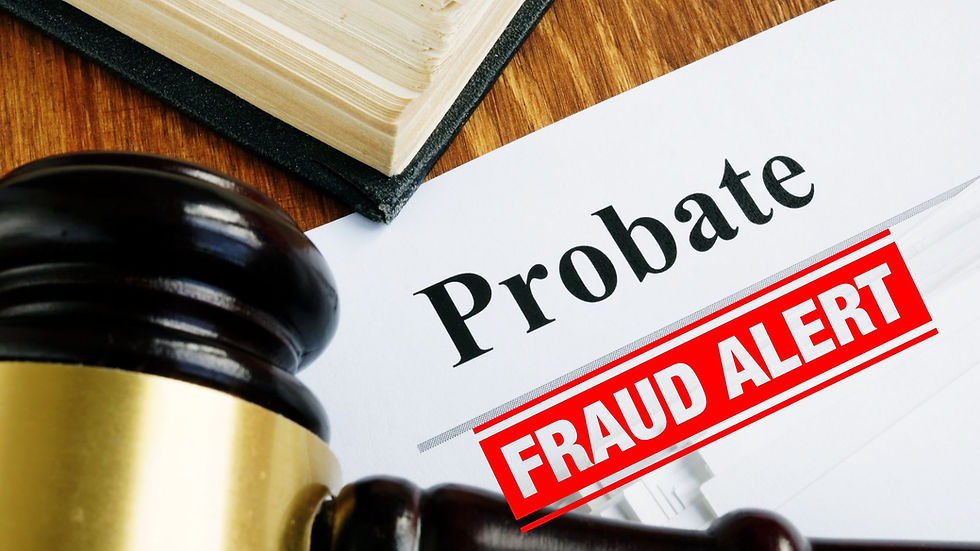Probate in the UK: A Brief Introduction
- Maplebrook Services

- Sep 28, 2020
- 3 min read
Updated: Mar 15, 2023
There are a number of legal and financial tasks and responsibilities to complete when a person passes away. These are termed “Administering an Estate” and one of these requirements is to apply for a ‘Grant of Probate’.
A ‘Grant of Probate’ is the official terminology to be able to deal with the deceased’s estate. The Probate Registry, part of the High Court, issues Grants of Probate in the form of an official legal document.
Probate is required to gain legal authority to administer a person’s estate including accessing and dealing with assets such as property, bank accounts, investments etc. These assets are frozen after a death until it is granted.
It also legally validates the Will. Strictly speaking, the Will isn’t legally valid until Probate has been granted.
Executing the Will
Having received the Grant of Probate the Executors have the legal authority to handle the deceased’s estate, pay outstanding debts and put into effect the terms of the Will.
The responsibility of obtaining Probate and dealing with the Estate rests with the Executor of the Will. Anyone can act as an Executor providing they are over the age of 18, not bankrupt and not lacking in mental capacity as defined by the Mental Capacity Act.
It is not necessary to appoint more than 1 executor although it is advisable to do so - for example, in case one of them dies. It is common to appoint 2, but up to 4 executors can take on responsibility for administering the will after a death. The people most commonly appointed as executors are relatives or friends.
Executors can either deal with the whole process themselves with no help or support; use the services of a company such as Maplebrook to assist with complicated issues; or delegate the whole process of Probate and Estate administration to such an expert organisation.
Steps to complete Probate application
Obtain original Will and identify the Executors.
Notify interested parties of the person’s death.
Value the deceased person’s estate.
Complete the Inheritance Tax paperwork and pay any tax due.
Complete the Probate application documentation.
Send the Probate application documentation together with numerous enclosures to the Probate Registry.
Steps after Grant of Probate to Administer the Estate
Check Grant of Probate has been issued correctly.
Place Legal Notices under Section 27 Trustee Act 1925.
Register the Grant of Probate with interested parties.
Close bank accounts, sell investments & transfer or sell the deceased’s property.
Settle debts, liabilities and expenses.
Finalise the deceased’s Income Tax & Capital Gains Tax positions.
Notify the beneficiaries.
Obtain Inheritance Tax clearance from HMRC.
Pay monetary (pecuniary) gifts and legacies.
Distribute the residuary estate.
If you or family or friends here in Cyprus or in the UK require assistance with administering an Estate, wish to appoint Professional Executors or create a new UK or Cypriot Will, please contact Wayne Barnett FCA, MIPW, STEP Affiliate of Maplebrook Services Limited on 26 600780 / 99 147650 or email wayne.barnett@maplebrookservices.com.
Just for fun ...
An elderly gentleman was on his deathbed as his wife, three children and nurse stood close by.
Then he spoke his final wishes:
"James, you take the Aphrodite Hills houses".
"Nicholas, you take the Kings Mall shops".
"Joshua, the apartments at the Limassol Marina are yours".
"To my dear wife, Anne, you take all the residential buildings in Kato Paphos".
The nurse was really impressed. She said, "Your husband must have been quite a man, amassing so much property to leave to all of you."
The wife responded, "What property? ... the schmuck had a window cleaning round!"


